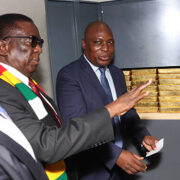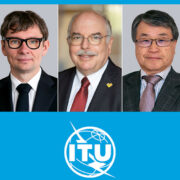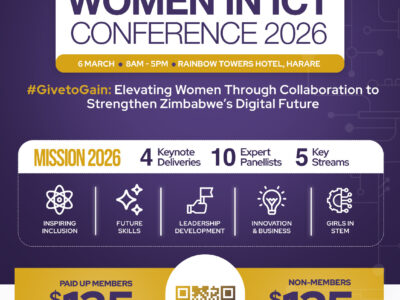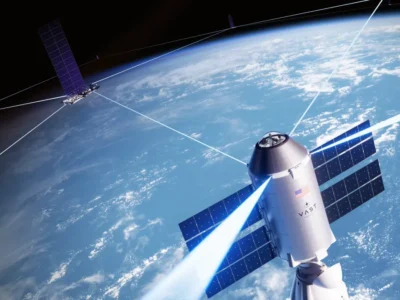By Ross Moyo
The mining industry plays an indispensable role in Africa’s economic growth, providing vital resources, jobs, and revenues that fuel development across the continent. Yet, despite the sector’s importance, media coverage often falls short in addressing its intricacies, challenges, and opportunities. This gap in reportage can hinder informed public discourse, limit accountability, and obscure the impact of mining on communities and the environment. Bridging this gap is critical as Africa moves towards more responsible mining practices, ethical sourcing, and sustainable development. One institution that has stepped up to the challenge is the Association of Mining Journalists of Zimbabwe (AMJZ), which has set a high standard for mining journalism in Africa.
At the 9th African Diamond Producers Association (ADPA) summit, held recently in Zimbabwe, a spotlight was placed on the AMJZ’s work. Patrick Mulindwa, a prominent Ugandan mining journalist and Chief of Staff of the Africa Minerals Strategy Group (AMSG), lauded the association for its outstanding contributions to media coverage of the mining sector. “Their reporting is not only comprehensive and accurate but deeply insightful,” Mulindwa stated. He commended the AMJZ’s focus on sustainability, socio-economic impacts, and the ethical responsibilities of local and international mining stakeholders.
Mulindwa, a prominent Ugandan mining journalist and Chief of Staff of the Africa Minerals Strategy Group (AMSG), lauded the association for its outstanding contributions to media coverage of the mining sector. “Their reporting is not only comprehensive and accurate but deeply insightful,” Mulindwa stated. He commended the AMJZ’s focus on sustainability, socio-economic impacts, and the ethical responsibilities of local and international mining stakeholders.
The Africa Minerals Strategy Group (AMSG), established by 16 founding African countries, plays a crucial role in facilitating international cooperation in the minerals and mining sectors among member nations. As the host of the AMSG Secretariat, Uganda is at the heart of these efforts, helping to ensure that Africa’s mineral wealth is managed in ways that benefit both current and future generations. The AMSG’s objectives align with fostering sustainable, transparent, and equitable mining practices, which are vital to Africa’s long-term prosperity.
Mulindwa, as Chief of Staff of the AMSG, has been instrumental in advocating for the role of mining journalism in shaping policy decisions and promoting responsible mining across Africa. “The AMSG recognizes the crucial part that journalists play in ensuring that Africa’s vast mineral wealth is managed responsibly,” said Mulindwa. “Without accurate and transparent reporting, stakeholders—ranging from governments to local communities—cannot fully understand the challenges and opportunities in the mining sector.”
Through the AMSG’s strategic focus on sustainability, transparency, and ethical practices, the organization seeks to create a mineral sector that not only drives economic growth but also addresses socio-economic and environmental concerns. One of its key pillars is collaboration with media and civil society to promote accountability, transparency, and ethical mining practices across the African continent. In this context, the AMJZ serves as an important ally, leading by example in professional mining journalism.
The Association of Mining Journalists of Zimbabwe (AMJZ) has distinguished itself as a professional body that brings together journalists specializing in mining coverage. The AMJZ provides a structured platform for its members to develop the specialized knowledge required to cover an industry as complex and technical as mining. Journalists in this space must navigate topics such as geological surveys, environmental regulations, mineral trade policies, and local socio-economic dynamics.
Tafadzwa Dube, President of the AMJZ, emphasized the importance of having such a body to elevate the quality of mining journalism on the continent. “Mining is not just about extracting minerals. It’s about community livelihoods, environmental stewardship, and long-term economic development. These are complex issues that require in-depth understanding and careful reporting,” said Dube.
The AMJZ offers its members resources, training, and a platform to share expertise. By fostering continuous professional development, the association equips journalists with the knowledge needed to report on the mining industry in a way that holds stakeholders accountable. Whether monitoring compliance with ethical standards or investigating the socio-economic impact of mining operations, the AMJZ’s work ensures transparency across the sector.
“We are happy that our work is being recognized by our peers, such as Patrick Mulindwa of the AMSG. This is a strong indicator that African journalists can unite to ensure ethical and responsible mining practices across the continent,” Dube said. He also noted the association’s willingness to collaborate with journalists from other African countries, reflecting its commitment to building a pan-African network of mining reporters.
As mining continues to be a pivotal industry in Africa’s development, there is a pressing need for more professional associations of mining journalists, like the AMJZ, across the continent. The creation of such bodies in resource-rich countries could offer numerous benefits, including:
Mining journalism is a specialized field that requires technical knowledge of geology, mining processes, environmental issues, and international trade laws. Through regular workshops and seminars, these associations could ensure that journalists stay updated on industry trends and best practices.
Associations could promote ethical journalism, ensuring that stories on mining are balanced, fact-checked, and avoid sensationalism. By prioritizing accuracy and fairness, journalists can contribute to public understanding and inform policy decisions that benefit both the industry and communities affected by mining.
A unified voice among mining journalists would provide the critical mass needed to hold both local and international mining companies accountable. This includes ensuring compliance with environmental regulations, labor laws, and ethical sourcing standards.
The mining sector often spans across borders, especially with minerals that are traded globally. Greater collaboration between journalists in different African countries could enhance reporting on illicit mineral trade, environmental degradation, and the socio-economic impacts of mining. Pan-African investigations, joint reporting projects, and the sharing of best practices would provide a more comprehensive picture of the industry.
Mining is often a misunderstood industry. By raising public awareness through thorough and accurate journalism, these associations can help educate citizens about the importance of mining to Africa’s economy, as well as its environmental and social implications.
Journalists have the power to shine a light on both the successes and failures of the mining sector. By doing so, they help guide policy, inform the public, and ensure that Africa’s resources are used responsibly,” said Mulindwa. His call to action echoes Dube’s, stressing the importance of collective efforts by journalists to raise the standard of reporting on mining in Africa.
The work of the Association of Mining Journalists of Zimbabwe (AMJZ) offers a powerful example of how journalists can collaborate to improve coverage of the mining industry, promoting greater transparency and accountability. As Africa’s mining sector evolves, the role of media in shaping its trajectory will only become more significant.
By fostering a more robust media ecosystem around mining, and with institutions like the AMSG driving international cooperation, Africa can better harness its mineral wealth for the benefit of its people. As Dube, Mulindwa, and other leaders in the field have shown, creating associations dedicated to mining journalism can empower African journalists to lead the way in reporting on one of the continent’s most vital sectors.













Comments